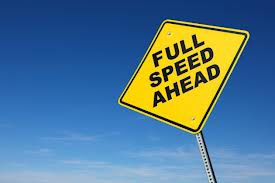 Williams Island as a whole had the opportunity to upgrade our internet service speed from 8Mbps to 40Mbps for $6.00 per unit per month. They rejected it. Atlantic Broadband has offered our building the same deal, and I am recommending that we take advantage of it. (In the interests of full disclosure, Atlantic Broadband has not signed off on the conditions required for the POA since they have the main agreement with ABB, so this may all be moot).
Williams Island as a whole had the opportunity to upgrade our internet service speed from 8Mbps to 40Mbps for $6.00 per unit per month. They rejected it. Atlantic Broadband has offered our building the same deal, and I am recommending that we take advantage of it. (In the interests of full disclosure, Atlantic Broadband has not signed off on the conditions required for the POA since they have the main agreement with ABB, so this may all be moot).
What Service Do We Have in the 4000 Building?
Our Internet service is provided by Atlantic Broadband, which provides our cable television service to the whole Island, including our building.
What is the Speed of Our Internet Service?
Our current maximum speed is 8Mbps down and 1Mbps up
What is “Down” and “Up”?
The “down” speed measures how fast information comes into your computer. The “up” speed measures how fast your request for information is sent.
Why is Down and Up Important?
When you click on a link or button to go someplace on the Internet, you send a “packet” with your information – what you want and directions back to your computer (so you get the information, not someone else). Your computer keeps sending the request until all of the information is received correctly.
If you are sending an e-mail, it keeps sending packets until the receiving computer (a “post office”) acknowledges that it got everything. If you are sending pictures or an attachment, the slower the Up speed, the longer it takes to send.
Down speed is important because it controls how fast information appears on your screen, or how fast a picture or file arrives in your email or from a web site.
Up speeds can be much less than Down speeds because the packets sent “up” are usually smaller than the ones being sent “down”.
If you want to watch a movie online, for example – or even talk by Skype Video or Facetime – the slower the down speed is, the longer the delay. That is because your computer has to receive many packets to assemble the picture or file.
Why Should I Care About My Internet Speed?
There are many reasons, so I will just point out a few.
(1) We receive our Internet over Atlantic Broadband Cable. Everyone on the Island receives it through the same main cable line. The more people who are using the Internet over our cable line, the weaker the signal gets, The weaker the signal, the slower the speed. The slower the speed, the slower your computer runs on the Internet.
The more things you hook up to your internet connection – computers, laptops, iPads, iPhones, tablets, smartphones, TV’s, DVD players – the slower your connection will be and the poorer the quality of your connection. If you use wi-fi to connect your computer to the Internet, the signal is even weaker.
Also, if you have telephone service over the Internet, that uses up your speed and quality of service too.
(2) If you have a data plan with your cell phone, you can save money by turning on and using the wi-fi connection in your home instead of using up your data plan. It will also be MUCH faster. And the added “cost” of 4G (and to a lesser extent, 3G) is that it runs down your battery faster, too.
Internet connectivity is being built into everything, and combined with entertainment choices and cellphones and tablets, higher speeds are becoming a necessity.
Can I Increase My Internet Speed?
Yes. We can do it at a cost of $6.00/month (plus tax) per unit as a building, and upgrade from the current 8Mbps/1Mbps service to 40Mbps/3Mbps – which includes a new DOCSIS 3.0 modem (the new standard for high speed transmission; DOCSIS 2.0 is what we currently have, and has been around for 10 years +/-).
Or we can do it individually at the following rates:
- Bulk Preferred to MAX:$24.95 (speed up to 12.0M) No Modem exchange required
- Bulk Preferred to MegaMax:$29.99 (speed up to 16.0M) No Modem exchange required
- Bulk Preferred to *Unleashed:$39.99 (speed up to 75.0M) *D3 modem required
- Bulk Preferred to *Peak: $169.99 (speed up to 110.0M) *D3 modem required
- Express 30Mbps is only available to new residential customers
(By comparison, your 3G and 4G cell phone data plan averages, depending on carrier and distance from cell tower, from <1Mbps to 5Mbps down and <0.5Mbps to 3Mbps u)
As Always, let me know what you think.
Arthur Shanker – #505


